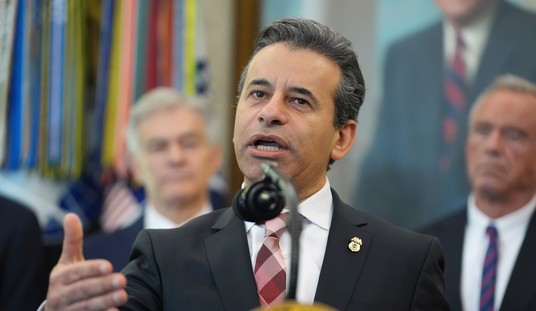US Secretary of Defense Robert Gates said that European NATO members can no longer expect the US taxpayer to pick up the tab for the Alliance. “The blunt reality is that there will be dwindling appetite and patience in the U.S. Congress, and in the American body politic writ large, to expend increasingly precious funds on behalf of nations that are apparently unwilling to devote the necessary resources or make the necessary changes to be serious and capable partners in their own defense,” he said. According to the Associated Press, “some NATO countries bristled, but Britain quickly and heartily agreed.”
The US now picks up 75% of NATO’s total expenses. Europe collectively pays for the remaining quarter. Although Gates believed it was well within the capacity of European countries to pay more for their own defense the odds they would do so were slim. Moreover, as the transcript of the speech shows, European NATO members have reserved the right to pick and choose between “hard” combat participation and soft “humanitarian” missions. Gates gave the example of the Libyan operation:
In particular, intelligence, surveillance, and reconnaissance assets are lacking that would allow more allies to be involved and make an impact. The most advanced fighter aircraft are little use if allies do not have the means to identify, process, and strike targets as part of an integrated campaign. To run the air campaign, the NATO air operations center in Italy required a major augmentation of targeting specialists, mainly from the U.S., to do the job – a “just in time” infusion of personnel that may not always be available in future contingencies. We have the spectacle of an air operations center designed to handle more than 300 sorties a day struggling to launch about 150. Furthermore, the mightiest military alliance in history is only 11 weeks into an operation against a poorly armed regime in a sparsely populated country – yet many allies are beginning to run short of munitions, requiring the U.S., once more, to make up the difference.
In the past, I’ve worried openly about NATO turning into a two-tiered alliance: Between members who specialize in “soft’ humanitarian, development, peacekeeping, and talking tasks, and those conducting the “hard” combat missions. Between those willing and able to pay the price and bear the burdens of alliance commitments, and those who enjoy the benefits of NATO membership – be they security guarantees or headquarters billets – but don’t want to share the risks and the costs. This is no longer a hypothetical worry. We are there today. And it is unacceptable.
But what to do? With their enormous welfare burdens and aging, even declining populations, European defense potential was almost irremediably shrinking. As the Economist points out, the British don’t even know where they are going to get the money to pay for their already shrunken Forces.
As Liam Fox, the Conservative defence secretary, has argued, even by Labour’s profligate standards, the financial situation he inherited is unique. In a speech last month, Dr Fox identified “an unfunded liability in defence of around £37 billion over the next ten years.” Under Labour, the MoD ordered equipment costing over £20 billion, “without ever having an idea whether the budget would be able to afford it”.
Britain is never going to recover its defense capacity because it essentially protects itself with the scraps of its ever increasing welfare commitments, as the chart below shows. And with welfare growing exponentially soon even those crumbs will be gone. In many respects this exactly mirrors the kind of fiscal trend that the US Federal government now faces. Buried in Gate’s speech is a more important, but unspoken message. The United States is on exactly the same downward path as the European NATO members. In the past US indirectly subsidized European welfare; but tomorrow Uncle Sam’s defense will subsidize its own Hope and Change until it runs out of money to defend itself, just like the Europe the President so ardently admires.
As the Heritage Foundation points out, American defense is becoming unaffordable too. Defense is inexorably down, welfare is inexorably climbing. But Common Dreams says that this trend doesn’t go far enough. “We knew that governors like Scott Walker were helping to manufacture a deficit to cut programs they wanted to target, even as they cut taxes for billionaires and the rich. Our Democratic president has given in to deficit hawking too. But to not make a single cut to so-called defense spending while attacking desperately-needed funds for jobs?” For nearly 3 generations the world has not experienced a general war and nobody now remembers how terrible it was. For the Left, security has alway been there and will always be there. Few in Europe, and no one on the Left, believe that the strength of the US military had anything to do with the Long Peace.
The European Union for example, has claimed that the general peace has been one of its proudest achievements. By increasing “integration” and promoting international law, it has made war in their vicinity “unthinkable”. One of the keys to this argument is the idea of “non-military deterrence”. America, and to a certain extent, European defense assets, provided the primitive and crude “military deterrence”. Treaties, agreements and international law provided the “non-military deterrence” and some believed they were enough to hold the ring. Skeptics argued that military forces were not needed, and this enlightened generation was only now becoming aware of their superfluity. To America was owed no thanks, except “thanks for nothing”.
In fact, basically deterrence is a very primitive thing, since even cats and dogs can be `deterred’, if we want them to respect our will by threatening voices or menacing hands. The same principle works with human beings, for instance, with children who have to be `deterred’ from eating cake before lunch or, more generally, with our daily behaviour in the street, where we have to observe stop signs and traffic lights and use parking spaces in order to avoid penalties. And, coming back to the field of international relations, it becomes evident that `non-military deterrence’ can be found in the fields of economic, financial, social and cultural politics (for instance, joint ventures, trade agreements, information exchanges, technology flow, sports and educational programmes and cultural exchanges). Put another way, `non-military deterrence’ is both a result and also a producer of both reciprocal values and the interest which governments and individuals of one nation or alliance have in maintaining and improving their relations with others (and vice versa), and it therefore both depends on and augments the degree of interdependence which exists between them.
The problem which even EU strategists recognized however, was that “non-military deterrence” might fail and the nations have fall back upon the barbaric methods of the past. That meant the need, not for more weapons, but for even more law. Only by Europeanizing the French and British deterrents under a common European Defense policy could the continent could provide for itself. Thus, even with the assets at hand and with the barbaric Americans gone, Europe could still defend itself through a common defense policy, though presumably, “non-military deterrence” would make this unnecessary.
But the problem ignored the long-term decline in European military potential. The rapid collapse in the UK’s defense capabilities, as painfully demonstrated in Libya, means that even those slender means may not exist any more. The solution will doubtless be not to increase the means but to diminish the ends. The shrinkage in capability has already taken the form of redefining the British defense roles to the minimum conceivable and by extension, all the other members of Europa who are dependent on it, and France. Europe cannot now venture beyond the rim of the Eastern Mediterranean.
Therefore Robert Gate’s speech is not likely to result in the revitalization of NATO but its abandonment. The EU bureaucrats are now likely to argue that since Europe cannot now even pretend to partner with America, then what little remains of their capability should be concentrated under the command of Brussels, hoarded against the last need, in the unlikely event that “non-military deterrence” fails. The social welfare policies of the Left have condemned Europe to existential danger in the long run.
For although the fantasies of the ideologues may soar, in the end they are dependent on physical security, food and energy. The great bureaucracies which comprise the welfare state empire are eating out their seed corn, a process which none of the modern apparatchiks can comprehend because have never had to come face to face with the exhaustion of their own means. In the past, they’ve only had to demand and those demands would be granted. Today as the Greeks are realizing, demands will no longer work when there is no more supply. Winston Churchill understood the problem. Referring to the Admiral von Spee valiantly sailing unsupported on seas where every port, every coaling station, every means of escape was guarded by the Royal Navy, Winston said, “he was a cut flower in a vase, fair to see yet bound to die.” That will be the fate of the EUs wall of treaty paper — and perhaps — the administration’s too.
http://www.youtube.com/watch?v=vtwYVvtOIuM
“No Way In” print edition at Amazon
Tip Jar or Subscribe for $5












Join the conversation as a VIP Member